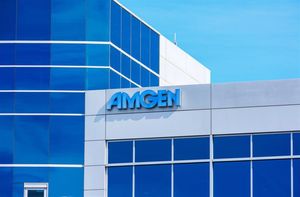SafeAir Certified Mold Inspection Inc., a leader in professional indoor air quality testing, is calling attention to a growing health concern affecting Durham residents: the connection between mold exposure and chronic joint pain. The company, owned by certified mold assessment consultant Jeremy Shelton, has seen a rise in clients reporting unexplained joint pain, fatigue, and inflammation all of which may be linked to undetected mold growth inside homes and workplaces.
Recent studies and client cases have shown that prolonged mold exposure can trigger immune responses that cause inflammation throughout the body. This inflammation often settles in muscles and joints, leading to persistent discomfort that many mistake for arthritis or aging. Shelton and his team at SafeAir Certified Mold Inspection are working to educate Durham residents about the symptoms, risks, and importance of professional testing.

“Mold doesn’t just affect your lungs it affects your whole body,” said owner Jeremy Shelton. “We’ve tested homes where people were dealing with ongoing joint pain or fatigue, and when the mold was removed, their symptoms improved dramatically. Mold toxins trigger inflammation, and the body reacts in ways most people don’t expect.”
Durham’s warm, humid climate makes it especially vulnerable to mold growth in attics, crawl spaces, and basements. Water damage, leaky pipes, and poor ventilation can create the perfect environment for hidden mold colonies to thrive. According to Shelton, what makes this issue so dangerous is how easily mold can go unnoticed until health problems begin to surface.
“Many people think mold has to be visible to be harmful,” Shelton explained. “That’s not true. Some of the most toxic mold species hide behind drywall or under flooring. You can’t always see it, but your body can feel it. That’s why proper testing is so important.”
SafeAir Certified Mold Inspection specializes in identifying invisible mold threats using advanced diagnostic tools. Each inspection includes air and surface sampling, moisture readings, and laboratory analysis to confirm mold type and concentration. The company’s testing reports are unbiased, as SafeAir does not perform remediation work—its role is strictly assessment and documentation.
“Our independence gives clients confidence,” Shelton said. “We don’t make money fixing what we find. We just deliver the data and help people understand what it means. That objectivity builds trust.”
Shelton has seen an increase in clients experiencing inflammatory symptoms like stiffness, swollen joints, and fatigue. In many cases, these individuals have visited multiple doctors without finding relief until environmental testing revealed mold contamination in their living or working spaces.
“Mold toxicity is a silent trigger,” Shelton noted. “People go through months or years of pain without realizing their home environment is part of the problem. Once we identify and remove the source, their bodies often begin to heal.”
Medical professionals have linked mycotoxins chemicals released by certain molds to inflammation that can disrupt the immune and nervous systems. This inflammation can mimic autoimmune conditions or worsen existing joint-related diseases. For Durham residents who spend much of their time indoors, especially during humid months, the risk of prolonged exposure is significant.
“Indoor air quality isn’t something most people think about until they get sick,” Shelton said. “But in this climate, it’s essential to take it seriously. Mold spores spread through the air and settle into surfaces, clothing, and even HVAC systems. Testing your home is one of the best ways to protect your health.”
SafeAir’s process is straightforward and based on state-certified protocols. The inspection begins with a visual and moisture assessment, followed by air sampling to measure spore levels indoors versus outdoors. The samples are analyzed by an accredited laboratory, and the results are provided in a clear written report. The company then guides clients on how to proceed with professional remediation if mold is found.
Shelton encourages residents to schedule mold testing if they experience unexplained health symptoms such as recurring joint pain, muscle aches, headaches, brain fog, or chronic sinus issues. “Your body is often the first alarm,” he said. “If you feel worse at home and better when you leave, that’s a red flag.”
SafeAir’s expansion into Durham aligns with its broader mission to promote healthier living environments across North Carolina. The company’s education-first approach helps homeowners understand both the biological and environmental aspects of mold exposure, empowering them to take preventive measures such as improving ventilation, managing humidity, and repairing leaks quickly.
“Mold prevention starts with moisture control,” Shelton explained. “Durham has older homes and heavy summer humidity, so routine inspections make sense. Keeping indoor humidity below 50 percent and fixing leaks early can prevent thousands of dollars in damage and months of discomfort.”
Beyond detection, SafeAir also provides post-remediation clearance testing to ensure mold removal has been successful and air quality has returned to normal levels. This step is crucial for homeowners who want verification before reoccupying a previously contaminated space.
“Our clients deserve peace of mind,” Shelton said. “When a remediation company finishes their work, we come in as the independent verifier. We make sure the air is clean and safe again.”
SafeAir Certified Mold Inspection’s focus on education and unbiased reporting has earned it a reputation for honesty and professionalism across Georgia and North Carolina. With growing awareness of mold’s impact on health particularly its link to joint pain and inflammation Shelton hopes more residents will take proactive steps to test their homes.
“People spend most of their lives indoors,” he said. “If your indoor air isn’t healthy, your body pays the price. Mold testing gives you answers and a plan to fix the problem before it affects your long-term health.”
SafeAir Certified Mold Inspection continues to raise awareness of mold-related health issues through certified testing, transparent communication, and community education. Under the leadership of Jeremy Shelton, the company’s expansion into Durham reinforces its commitment to helping residents identify and prevent mold toxicity before it harms their health and homes.
###
For more information about SafeAir Mold Testing Durham Office, contact the company here:
SafeAir Mold Testing Durham Office
Jeremy Shelton
404-695-0673
Jeremy@SafeAirMoldTesting.com
3204 Stones Throw Ln, Durham, NC 27713






